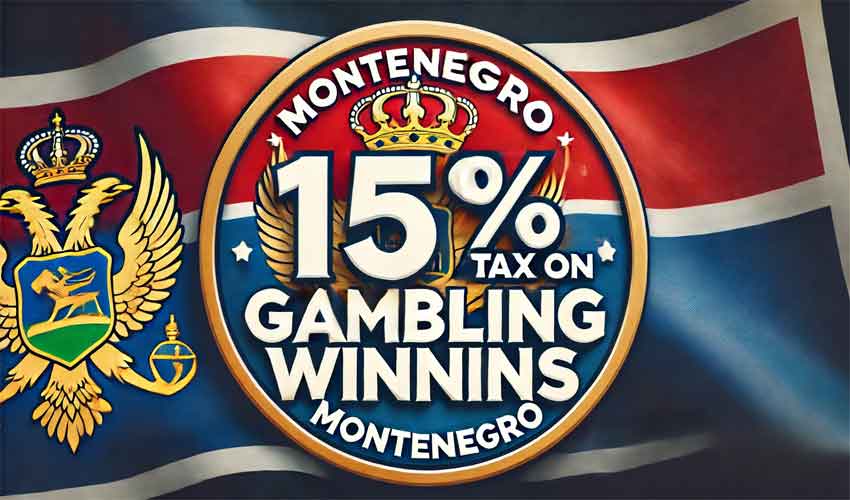Montenegro’s Finance Ministry Proposes 15% Tax on Gambling Winnings: A Major Blow to the Industry
Montenegro’s Ministry of Finance has proposed a sweeping reform that could reshape the country’s gambling landscape. By introducing a 15% tax on gambling winnings and banning electronic payments, the government aims to address budgetary concerns and combat gambling addiction. But these measures, while seemingly well-intentioned, have sparked significant opposition within the industry. The proposed changes could cripple the gambling sector, causing substantial revenue losses and increasing operational risks.
We can help you obtain your Gambling License
A Push for Increased Revenue and Gambling Protections
The Montenegrin government, led by Prime Minister Milojko Spajić, is taking a hard stance on gambling. The Ministry of Finance has outlined a plan to impose a 15% tax on all gambling winnings. This move is part of a broader strategy to increase national revenue by an estimated €5 million annually. The government argues that this additional revenue is crucial for addressing the growing problem of gambling addiction in Montenegro.
Currently, gambling winnings are exempt from taxation in Montenegro, a policy the government now deems “unjustified.” The proposed tax, which would amend both the Personal Income Tax and the Gambling Act, is designed to generate funds to support social programs aimed at mitigating the risks associated with gambling. The government’s focus is particularly on protecting minors from the potential harms of gambling, aligning with the Prime Minister’s broader agenda of strengthening gambling regulations.
Industry Backlash and Concerns Over Revenue Losses
Unsurprisingly, the proposed tax has faced strong opposition from the Montenegrin Gambling Operators’ Association. The industry body argues that similar tax measures in other countries have led to negative outcomes, including significant declines in gambling revenue. The association warns that the proposed 15% tax could reduce payments by as much as 30%, severely impacting the profitability of gambling operators across the country.
Montenegro Bet, a prominent player in the local gambling scene, has already launched a petition against the proposal. The company argues that this tax could devastate the sector, leading to job losses and reduced investment in the industry. The association fears that this move could drive gambling activities underground, further complicating efforts to regulate the industry effectively.
The Controversial Ban on Electronic Payments
Adding fuel to the fire, the Montenegrin government has also proposed a ban on electronic payments for gambling transactions. This measure, intended to curb money laundering and ensure greater transparency, could inadvertently harm the industry. Gambling operators argue that banning electronic payments will push more transactions into the unregulated cash economy, increasing the risk of illegal activities and money laundering.
The ban would force customers to top up their gambling accounts only at physical betting outlets, which operators claim could reduce accessibility and convenience for players. This could lead to a decline in gambling activity and, by extension, a reduction in the tax revenues that the government hopes to increase.
While the government has already approved amendments to Article 68f of the Gambling Act to implement this ban, there are signs that it may reconsider. After facing significant industry pushback, officials have indicated a willingness to reassess the proposal. However, the future of this controversial measure remains uncertain.
A Crossroads for Montenegro’s Gambling Industry
Montenegro’s proposed tax on gambling winnings and the ban on electronic payments have placed the country’s gambling industry at a crossroads. While the government aims to increase revenues and strengthen gambling protections, these measures could have the opposite effect, crippling the sector and driving activities underground. The coming months will be crucial as the industry, government, and stakeholders debate the future of gambling in Montenegro.
In an environment where regulatory changes can have far-reaching consequences, it’s clear that the Montenegrin gambling industry is in for a challenging period. The outcome of this proposal will set the tone for the future of gambling in the country, determining whether it thrives under new regulations or falters under the weight of stringent controls.
How can Szilaghi Consulting help you get your Online Gambling License?
Embarking on the intricate journey of iGaming solutions demands the support of seasoned professionals. Szilaghi Consulting, with its profound industry knowledge and proficiency, emerges as a guiding light for those deciphering Romanian gambling regulations. Our dedication extends beyond mere guidance; we’re committed to ensuring your enterprise flourishes in this ever-evolving domain.
To encapsulate, the Romanian online gambling realm offers a plethora of advantages for prospective investors. Its political stability, enticing tax benefits, and broad advertising avenues make Romania an astute choice for global operators. It’s essential to remain informed about local gambling regulations, guaranteeing a smooth and law-abiding gaming experience.


